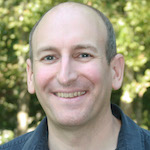
Speaker: Prof. Kenneth Nollett, Physics Department, SDSU
Topic: “Nuclear collisions from the ground up“
Time: 2:00 p.m., Friday, September 15th (refreshments served at 1:45 p.m.)
Place: P-148
Abstract:
Nucleons — neutrons and protons — have strong and complicated interactions with each other, and their fermionic nature adds to the difficulty of modeling a nucleus with mass number A as a true A-body system. Ever since Chadwick discovered the neutron, these features have forced physicists to model most nuclear systems with some kind of effective potential that does not trace back to the basic interaction between nucleons. Nuclear reactions in particular are modeled with the colliding nuclei described as quantum mechanical particles interacting through a potential tailored to those particular nuclei, even for systems that have never existed in the laboratory. Advances in the past 25 years have gradually made it possible to compute bound states of many nuclei directly from the nucleon-nucleon interaction, but work on nuclear collisions has lagged because collision problems have inconvenient boundary conditions. This is unfortunate, because calculations starting from bare nucleons should reduce the uncertainties on reaction cross sections that are needed for astrophysics. Moreover, such calculations can be combined with experimental data to better determine the nucleon-nucleon potential. I will describe ongoing work to compute exact nuclear cross sections from nucleon-nucleon interactions using quantum Monte Carlo methods, and also paths toward constructing effective two-body models that are grounded in nucleon-nucleon physics rather than fitted empirically.

